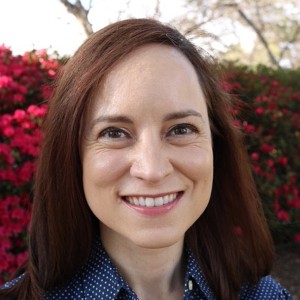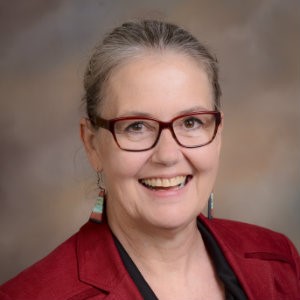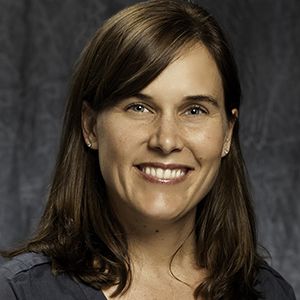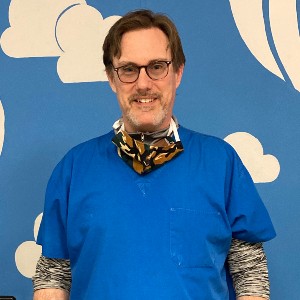Educator Spotlights
By Treva Smith, OTS
TWU School of Occupational Therapy educators are dedicated to their students, research and enhancing the profession of occupational therapy. Here, we spotlight a few of them and their outstanding contributions.

Sarah Borsh: The joy of doing both clinical work and teaching
Sarah Borsh, OTD, OTR, has been a valuable adjunct instructor for the TWU Dallas campus since 2009. She is an occupational therapist and therapy supervisor at Baylor University Medical Center in Dallas and finds joy in being able to do both clinical work and teaching. She enjoys helping students learn the distinct value of occupational therapy and the importance of being an advocate for patients and families, while being challenged to think on her feet and learning from students. She stresses the importance of self-reflection both in the classroom and in the clinic. Students love how Borsh creates a safe learning environment where they can ask any question and try on new skills in communication.
Her advice to someone starting out as a new adjunct faculty member is to find a mentor to guide them through everything from how to use learning systems to making quizzes, posting lectures and classroom management.
“You will make mistakes and that is ok,” she said. “You will learn from them.”
Borsh is not afraid to be vulnerable when sharing with her students about how occupational therapists serve others and how meaningful and important that is. She finds meaning in a quote from Rising Strong by Brené Brown: “If we are brave enough, often enough, we will fail; this is the physics of vulnerability….We can rise up from our failures, screw ups and falls, but we can never go back to where we stood before we were brave or before we fell. Courage transforms the emotional structure of our being. Choosing authenticity and worthiness is an absolute act of resistance.”
Borsh exemplifies authenticity.

Claudette Fette: Modeling community mental health advocacy
Clinic Professor Claudette Fette, PhD, OTR, CRC, shares her passion for mental health not only in the classroom, but also through providing quality hands-on learning opportunities to practice mental health intervention skills in community-based practice. In 2013 Fette started a mental health group shaped by recovery principles, meaning participants drive the focus of their program. The goals of the group are to develop productive occupations and self-advocacy.
Fette herself is a tireless advocate for those with serious mental illness, disabilities and people who are homeless in Denton. Over the last eight years, the group has advocated with policy makers, formed a peer-to-peer group with Recovery International, sold small crafts at the local market and renamed themselves as the Able DisAbled group.
TWU occupational therapy students are deeply engaged in supporting group activities as well. Fette, along with her students, has guided a number of community-based activities focused on children, youth and families, such as groups both for the children and for mothers at Wheeler House, a community-based shelter. Under Fette’s guidance, students have provided support for people living in Denton County MHMR’s housing, engaged in street outreach with Giving Hope and developed activities for children living with mental illness.
Fette’s strengths-based research groups became a positive youth development series for at-risk youth. That work evolved into weekly groups for youth in foster care at Cumberland Presbyterian Children’s Home, focusing on transition from foster care to community living. She is currently working to organize opportunities with students in support of the unaccompanied minors sheltered in the Kay Bailey Hutchinson shelter in Dallas.
Fette’s modeling of community health advocacy provides important learning opportunities for students and practicing clinicians. One of her favorite quotes by Jane Addams embodies this: “We may either smother the divine fire of youth or we may feed it. We may either stand stupidly staring as it sinks into a murky fire of crime and flares into the intermittent blaze of folly or we may tend it into a ... flame with power to make clean and bright our dingy city streets.”

Catherine Cooper Hay: Researching real-world solutions for clinicians and patients
Houston Assistant Professor Catherine Cooper Hay, PhD, OTR, specializes in stroke and brain injury recovery as a certified stroke rehabilitation specialist and researcher. Hay’s inpatient rehabilitation experience of working with patients to prescribe wheelchairs and adaptive equipment has afforded her opportunities to understand this detailed process and the decisions that must be made to prioritize one feature over another. This has led her to pursue research in collaboration with the OT department at TIRR Memorial Hermann that explores best practice recommendations for wheelchair prescriptions to maximize a patient’s community participation after discharge.
Hay’s research explores:
- What rehabilitation and participation priorities remain over time for people who have experienced a stroke or brain injury
- What technologies provide the best value for the money, are feasible to use, and truly address a patient’s functional needs in how it truly address needs
- What questions need to be asked to help therapists and patients best project wheelchair needs
Hay’s goals for translation into practice are to find easy-to-use, low-cost interventions for patients that are easy real-world solutions.

Rudy Seward: Learning from students as a fieldwork educator
Rudy Seward, OTR, is one of our amazing TWU fieldwork educators who works at The Therapy Spot, a pediatric clinic with multiple locations. Seward’s favorite part of being a fieldwork educator is being taught by the students. He finds they help him as much as he helps them, particularly Fieldwork 2 students.
During the last year, Seward stepped in to take extra TWU fieldwork students that had been dropped from sites during COVID. At the same time, he was quickly transitioning to telehealth. Together, Seward and the students worked as a team to implement new protocols, figure out technology and problem solve treatment activities. He says the students not only helped him move forward, but also helped him move into doing telehealth with confidence.
His advice to someone starting out as a fieldwork educator is that “to want to be a fieldwork educator, you have to really want to do it” and to know there are many benefits to having students. When he has observation and fieldwork students, he loves how the clients benefit from all the students’ different skill sets and interests.
One of his proudest moments as a fieldwork educator was when an ambitious student took an idea from his “therapy bucket list” to develop two parent “sensory activity night out” events. Seward set a goal for this coming year to dive into the meaning and philosophy of practice.
Seward’s growth orientation is a model for everyone he mentors.
Page last updated 3:41 PM, April 28, 2021